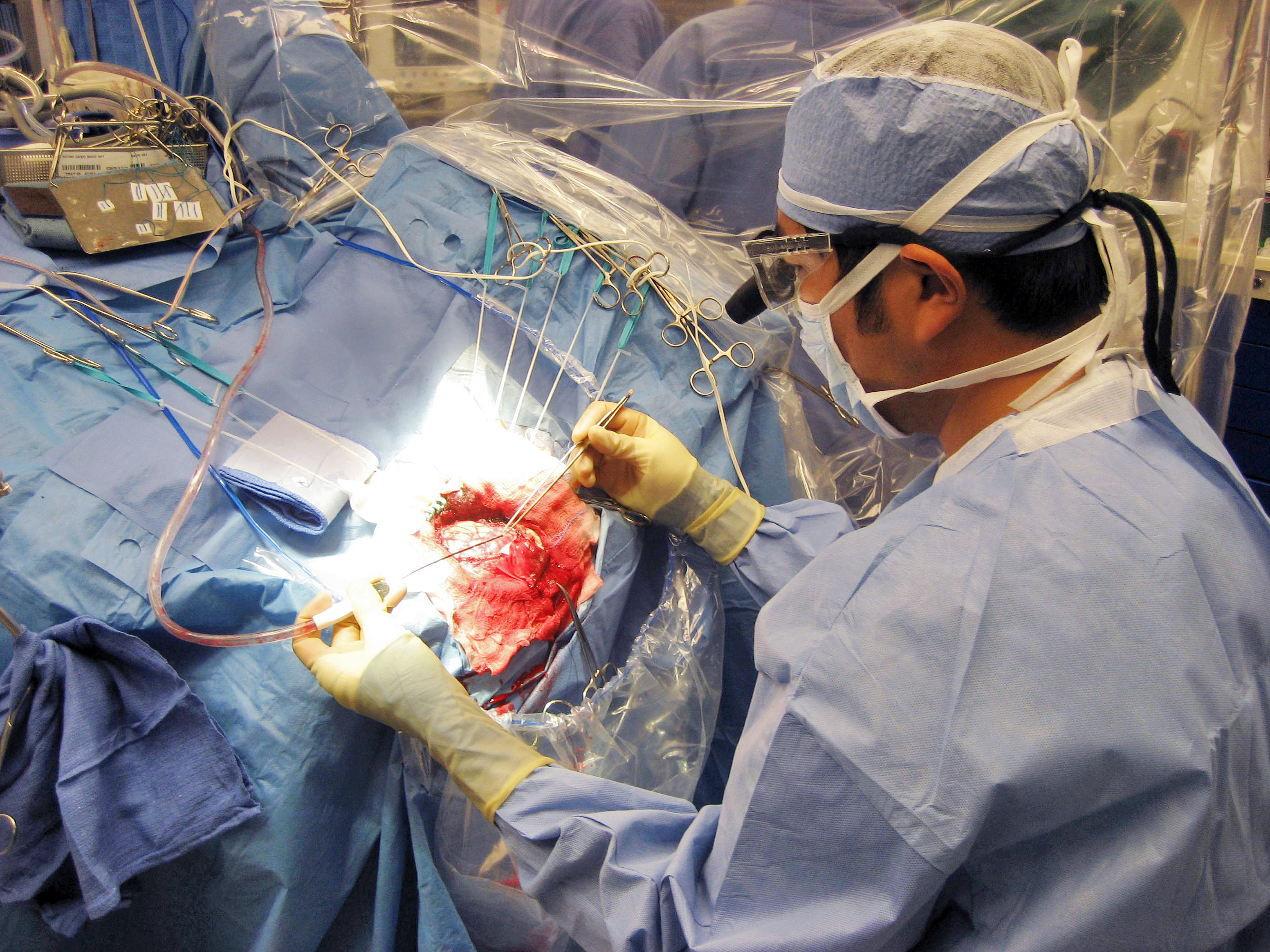UCLA Medical Center neurosurgeon Dr. Isaac Yang to receive award for cutting-edge work analyzing new vaccines for patients with brain tumors

Dr. Isaac Yang, a neurosurgeon at UCLA Ronald Reagan Medical Center and an assistant professor at the David Geffen School of Medicine, researches and removes brain tumors.
(Courtesy of Issac Yang)
By Golmah Zarinkhou
April 11, 2011 12:28 a.m.
A Taylor Swift song plays in the background as the surgeon speaks to the camera in his operating room.
Dr. Isaac Yang cuts across the shaved portion of his patient’s head, pulls back the skin and reveals the skull. He carefully drills three small openings within the bone before connecting them.
Lady Gaga starts crooning. A crowbar-like tool is placed under the skull to lift the drilled piece, making a popping noise like a soda can opening.
Then Yang sees it, pulsating with the beat of his patient’s heart ““ the organ he loves, one which controls lives and emotions: a living brain.
“I live and die for that moment,” Yang said.
Brain tumors may cause death, but they define Yang’s life. He removed five of them in 36 hours last week, stopping only once for a two-hour nap.
He researches tumors, removes them and teaches about them to medical students at the David Geffen School of Medicine at UCLA.
Yang joined the university’s faculty in July as an attending neurosurgeon. In September, he was the lead author on an abstract paper analyzing groundbreaking clinical trials at UCLA.
The trials compared two new vaccines to fight glioblastoma, the deadliest brain tumor.
Yang said the hospital tested vaccines meant to teach the body’s immune cells to attack a tumor like hunting dogs with a target scent. One vaccine consists of immune cells, specifically dendritic cells, mixed with the patient’s whole tumor, and the other is mixed with tumor-specific proteins.
Glioblastoma generally grants patients 12 to 14 months to live, but Yang’s analysis showed patients who were given the whole tumor vaccine survived longer. Yang said 55 percent remained alive after two years.
Today in Denver, the American Association of Neurological Surgeons will present the 33-year-old neurosurgeon with the Ronald L. Bittner Award for his analysis.
Despite his current success, Yang did not always want to be a doctor.
His parents emigrated from Korea, gave birth to Yang in Chicago and raised him in Lodi, a small town near Fresno.
Yang majored in social welfare at UC Berkeley. During this time, he realized he truly wanted to help people, but in a different way.
“Social work is really hard. You see kids get taken away from broken families,” he said. “I just felt like I wasn’t making a big enough difference.”
Instead, Yang spent a fifth year in college to finish his premedical courses. When the UCLA School of Medicine granted him acceptance, life clicked.
“Med school was freakin’ awesome,” he said, adding that living in Los Angeles allowed him to surf or golf in his free time.
His six years as a resident at UC San Francisco were not so smooth.
“During residency, in the pitchest, darkest hours of those nights when I was getting yelled at and overworked, there were three or four times I thought I didn’t want to do this anymore,” Yang said.
Yet he said no feeling compares to opening someone’s head, and now, his mouth curves into an involuntary smile every time he describes his work or research.
“It’s blatantly obvious that he’s excited,” said Daniel Nagasawa, a UC Irvine medical student working in the Yang Lab for oncology outcomes. “We all rise together (in the lab). He definitely fosters and facilitates that type of mentality.”
Yang said the hardest part about his job is not research or surgery but dealing with the human aspect of it all.
“To me, he’s an angel I think,” said Young Chung, 52, whose benign brain tumor was leading to blindness before Yang took it out.
And with white dressing wrapped around her head but red cheeks, Katie Rogers, 57, smiled in the Neointensive Care Unit mere hours after Yang removed her tennis-ball sized brain tumor.
Yang entered and left her room like he did each one, by taking his patient’s hand in two of his own.
Rogers said a half hour before surgery, Yang snuck up on her gurney and made her laugh, and she was thankful she could feel happy at such a time.
The next day, with no dressing to conceal only half a head of hair, she smiled again as Yang said she could go home soon.
In the hospital elevator, Yang overheard a man say his loved one has cancer. The surgeon hung his head, but when the man left, Yang somberly said, “I go to work every day to a place everyone wants to leave.”
Yang said he simply hates brain cancer. One patient who refused treatment because of her pregnancy and then died after giving birth left a particular impression on him.
Yang collaborates with the California NanoSystems Institute in researching how nanoparticles can help stimulate the immune system, with hope to find a better way to wage war for his patients.
In his office, where 28 plaques and frames hang on the walls and a human skull lies atop his desk, he lifts his hand and crosses two fingers.
“I’m like this with my patients.”


